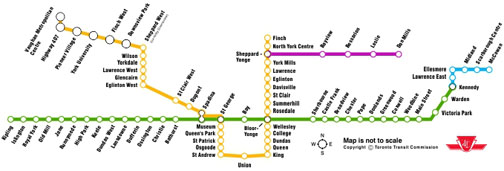UTS Open '15 #4 - Subway
View as PDFMs. Evans is meeting some venture capitalists who may be able to fund her startup. Unfortunately, she is running late, and the meeting is in

The subway system is very unpredictable.
Since the system is complicated, Ms. Evans follows a simple procedure: at every point, she uses a link selected uniformly at random from all links leaving her current station. Ms. Evans ends her trip when she reaches the meeting or reaches a station without any outgoing links.
Ms. Evans starts at station
| Portion of marks | Constraints on | Constraints on | Constraints on |
|---|---|---|---|
Input Specification
The first line will contain
Output Specification
A single line containing the answer to the problem. Your answer will be considered correct if its absolute or relative error does not exceed
Sample Input 1
2 1 4
1 2 1 100000Sample Output 1
2.5000000000Explanation for Sample Output 1
In this case, the answer is the average of the values that would let Ms. Evans be on time:
Sample Input 2
3 2 3
1 2 1 100000
2 3 1 100000Sample Output 2
2.6666666667Sample Input 3
3 3 2000
1 3 1 1
1 2 1 1
2 1 1 1Sample Output 3
3.0000000000Explanation for Sample Output 3
The answer is close to
Picture for Sample Input 3
Sample Input 4
2 3 10
1 2 6 10
1 2 1 2015
1 2 8 17Sample Output 4
8.2203841034Sample Input 5
3 4 3
1 2 1 2
2 3 2 2
2 3 1 6
1 3 1 10Sample Output 5
2.4938271605
Comments
Can someone please explain how sample 5 obtained that output? Even after doing it by hand I could only get ~2.12 as the answer.
1 to 3:
1/20 * 1
1/20 * 2
1/20 * 3
1 to 2:
1/4 * 1
1/4 * 2
2 to 3:
1/8 * 3
1/48 * 2
1/48 * 3
1/48 * 3
This totals to ~0.842.
0.842 / (1/8 + 3(1/48) + 3(1/20)) = ~2.494.
Thanks m8 I'll tell bruce to give you a sticker next class.
Would the answer for test case 2 be 1.833333? It would be 1/6 2 + 1/6 3 + 1/3 * 3 no?
In sample case 2, the probability to station 2 for 1 minute is 1/100000, for 2 minutes is 1/100000. Similarly, the probability to station 3 for 1 minute is 0, for 2 minutes is (1/100000)*(1/100000), for 3 minutes is (1/100000)*(1/100000)+(1/100000)*(1/100000) (first term: move to 2 for 1 minute and from 2 to 3 for 2 minutes; second term: move to 2 for 2 minutes and from 2 to 3 for 1 minute).
So, the expected value to 3 is
{(2 minutes to 3)*(probability of 2 minutes to 3) + (3 minutes to 3)*(probability of 3 minutes to 3)}/(overall probability to 3 within 3 minutes)
= {2*(1/100000)*(1/100000)+3*[(1/100000)(1/100000)+(1/100000)\(1/100000)]} / [(1/100000)*(1/100000) + (1/100000)*(1/100000)+(1/100000)*(1/100000)]
= 8/3
= 2.6666666667